Scholarship
HIRN 2020 Scholarship Recipients
Congratulations to the 9 recipients of the HIRN 2020 Scholarship! These individuals submitted abstracts that were competitively reviewed by members of HIRN Planning Committee and selected as being highly meritorious. Additionally they will receive a $500 award.
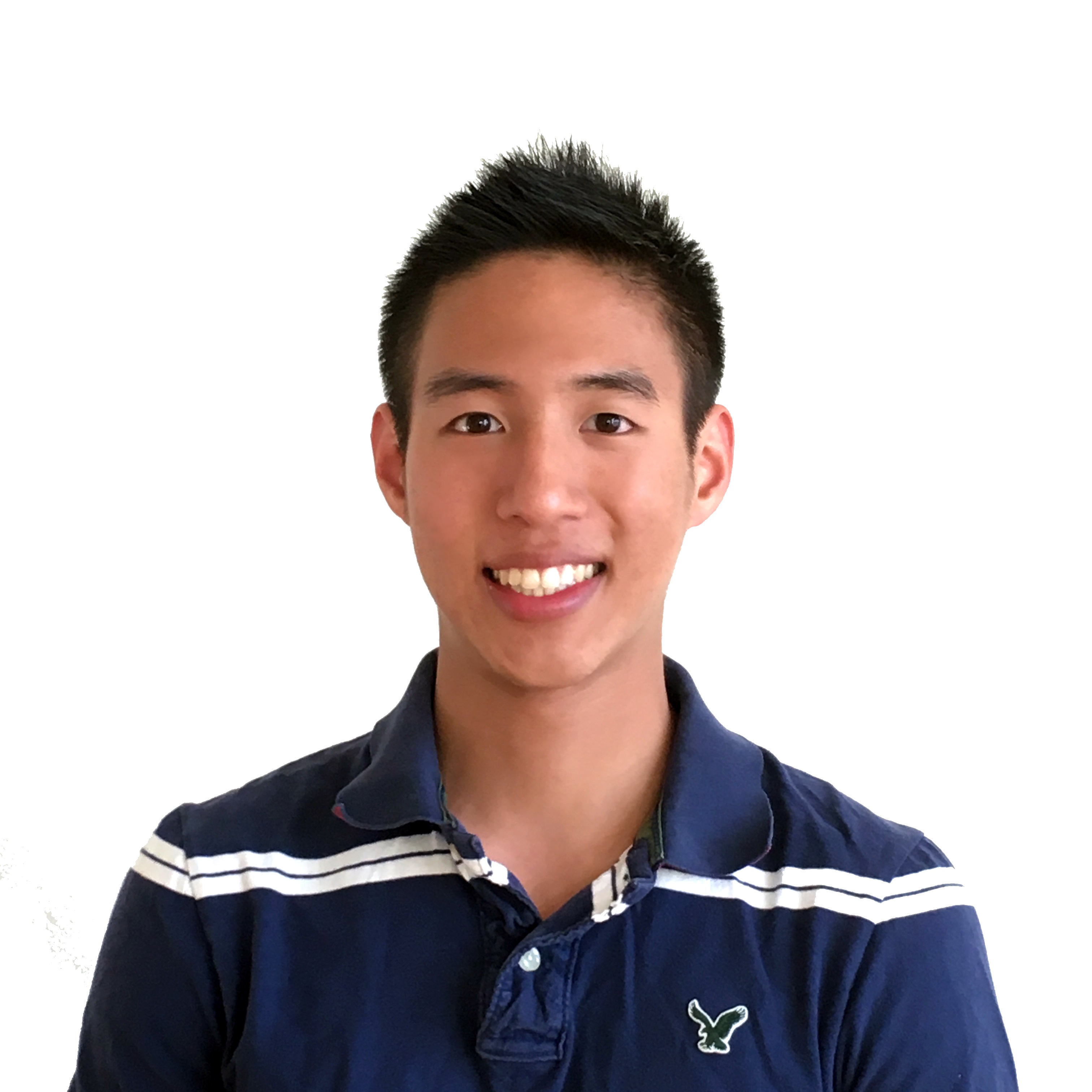
Doctoral Graduate Student
Project: Single Cell Analysis of the Human Pancreas in Type 1 Diabetes
Joshua Chiou is currently a Graduate Student in the Biomedical Sciences Program in the lab of Dr. Kyle Gaulton at University of California, San Diego. His research focuses on human genetics and gene regulation, specifically by combining genome-wide association studies and single cell assays to understand genetic risk mechanisms of diabetes. Prior to his PhD training, Joshua received a BS degree in Microbiology, Immunology, and Molecular Genetics from University of California, Los Angeles.
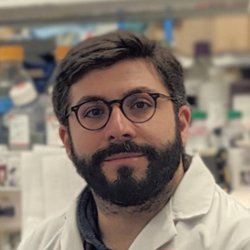
Postdoctoral Research Fellow
Project: Interrogation of Dynamic RNA Modifications in Beta Cells in Type 1 Diabetes
Dario De Jesus is currently a Postdoctoral Research Fellow in the laboratory of Professor Rohit N. Kulkarni at the Joslin Diabetes Center and Harvard Medical School, where he holds a Mary K. Iacocca Junior Postdoctoral Fellowship. Dr. De Jesus joined the Kulkarni laboratory initially as a Fulbright Research Scholar during his Master’s studies. He later enrolled in the Graduate Program of Basic and Applied Biology (GABBA) at the University of Porto, Portugal and returned to the Kulkarni laboratory to complete his PhD focused on research related to metabolic reprogramming of Non-Alcoholic Fatty Liver Disease. He is currently interested in mRNA modifications and especially in the role of N6-methyladenosine (m6A) in pancreatic islet cell function and survival in Type 1 and Type 2 Diabetes.

Postdoctoral Research Fellow
Project: Therapeutic Targeting of the Human Islet Environment
Shen Dong is currently a Postdoctoral Research Fellow in the laboratory of Dr. Jeffrey Bluestone at University of California, San Francisco. Her research focuses on the characterization of regulatory T cell TCR repertoire and antigen recognition in the context of type 1 diabetes (T1D). She is also using single cell TCR and gene expression profiling in order to define the immune response in clinical trial for immunotherapies in T1D such as low-dose IL-2 and the tyrosine kinase inhibitor Gleevec. During her graduate years she studied immunology and worked on the understanding of the early T cell receptor (TCR) signaling regulation at Pasteur institute in the laboratory of Pr. Oreste Acuto. After the completion of her degree, she joined Dr. Christopher Garcia lab at Stanford during 3 years in order to expend my skills in therapeutic oriented protein engineering. It is where she designed the yeast display peptide-MHC libraries before joining the Bluestone laboratory with the goal to deorphanized Treg TCRs in T1D.

Postdoctoral Research Fellow
Project: High-Resolution Analysis of the Juvenile Human Pancreas
Angela Kruse is currently a Postdoctoral Research Fellow in the Mass Spectrometry Research Center at Vanderbilt University. She received her B.S. in Genetics and Plant Biology from the University of California, Berkeley and her Ph.D. in Plant Pathology with a focus in Biochemistry from Cornell University. Her current research goal is to better understand how diabetes affects the molecular environment of pancreatic islets using a combination of imaging mass spectrometry, proteomics, biochemistry, and bioinformatics. She hopes to spend her career applying and integrating cutting edge technologies to address important challenges facing our society and planet.
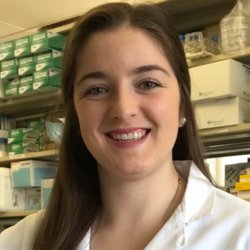
Doctoral Graduate Student
Project: Modeling Autoimmune Pathogenesis and Beta Cell Destruction by T1D Immune Systems
Rachel Madley is currently a PhD candidate in the Microbiology and Immunology Department at Columbia University Medical Center doing her dissertation research in the laboratory of Dr. Megan Sykes. Her research focuses on T cell development in the human immune system and impairment of this process in Type 1 diabetes and other autoimmune diseases. Prior to starting her PhD, she received her Bachelor of Science from the University of Michigan-Ann Arbor where she also conducted diabetes research in the laboratory of Dr. Ming Liu. Driven by her own experience as a Type 1 diabetic, Rachel strives to advance treatment strategies for diabetics and ensure everyone can afford those treatments regardless of socioeconomic status.
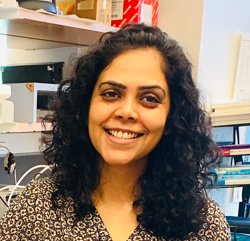
Postdoctoral Research Fellow
Project: Human Islet-Infiltrating T Cell Biology: Reactivity, Structure and Function
Padma Nanaware is a currently a Postdoctoral Research Fellow in the laboratory of Dr. Lawrence Stern at the University of Massachusetts Medical School. She completed her PhD in Cancer Biology from Tata Cancer Research Centre, Mumbai, India in 2015. Her PhD research lead to identification of cancer protein interaction network mediated by Gankyrin, a proteasomal chaperone and an oncoprotein. Her current research focuses on applying mass spectrometry to understand immune processes and MHC biology. She developed a platform for extensive analysis of MHC-presented peptidomes by mass spectrometry and biochemical approaches.
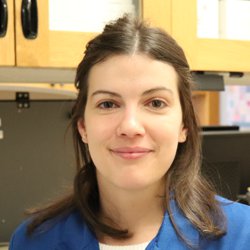
Postdoctoral Research Fellow
Project: Therapeutic Targeting of the Human Islet Environment
Emilie Ronin is a currently a Postdoctoral Research Fellow in the laboratory of Dr. Qizhi Tang at the University of California, San Francisco. Her research experiences started with summer internships during her college studies in Paris, France. After receiving her BS, she specialized in Immunology during her master studies. She then joined Dr Benoit Salomon’s lab, in Paris, France, for her PhD thesis research and one-year postdoctoral work in Immunology. During this time, she investigated the role of RelA, one of the major NF-kB subunits, in regulatory T cells (Treg) homeostasis and function. In addition, she studied the role of receptors of the TNF superfamily in Treg biology and their implications in multiple sclerosis and tumor immune evasion. Since November 2018, she joined Tang lab to continue her postdoctoral training. Her work focuses on engineering Tregs using new synthetic biologic tools to improve their specificity and functionality for the treatment of type 1 diabetes.
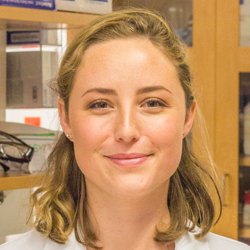
Doctoral Graduate Student
Project: Engineering a Human Microphysiological System for the Characterization of Islet-Immune Interations
Magdalena is currently a 3rd year Doctoral Graduate Student in the Department of Biomedical Engineering at the University of Florida in the lab of Dr. Cherie Stabler at the University of Florida. She received her BS in Biomedical Sciences from University of South Florida, MS in Biomedical Engineering at the University of Florida. She has worked on multiple research projects throughout her undergraduate and graduate training that have focused on engineering solutions to various diseases, from cancer to diabetes. Her current research focuses on engineering a 3-D biomimetic in vitro platform for the interrogation of Type 1 Diabetes immunopathogenesis. The aim of her current project is to create a platform which will enable controlled co-culture of islet and immune cells, allow for cell migration, real-time imaging, and controlled addition of soluble cues, such as chemokines and cytokines implicated in the pathogenesis of T1D in humans.
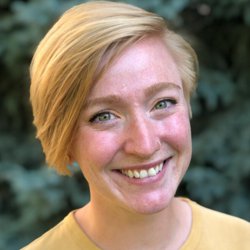
Doctoral Graduate Student
Project: Single Cell Resolution of Omics Analysis in T1D
Alexandra Theis is currently a PhD candidate in the Cell Biology, Stem Cells, and Development Program at University of Colorado Anschutz Medical Campus doing her dissertation research in the laboratory of Dr. Lori Sussel. Her research focuses on using both in vivo mouse models and in vitro systems to investigate the role of Groucho-mediated transcriptional repression in the development, maintenance, and function of pancreatic beta cells. Prior to starting her PhD, she received her Bachelor of Science from the University of Minnesota Duluth where she worked in the lab of Dr. Matt Andrews studying the genetic and molecular mechanisms of hibernation in thirteen-lined ground squirrels, specifically calcium handling in the mitochondria of hibernating squirrels.

